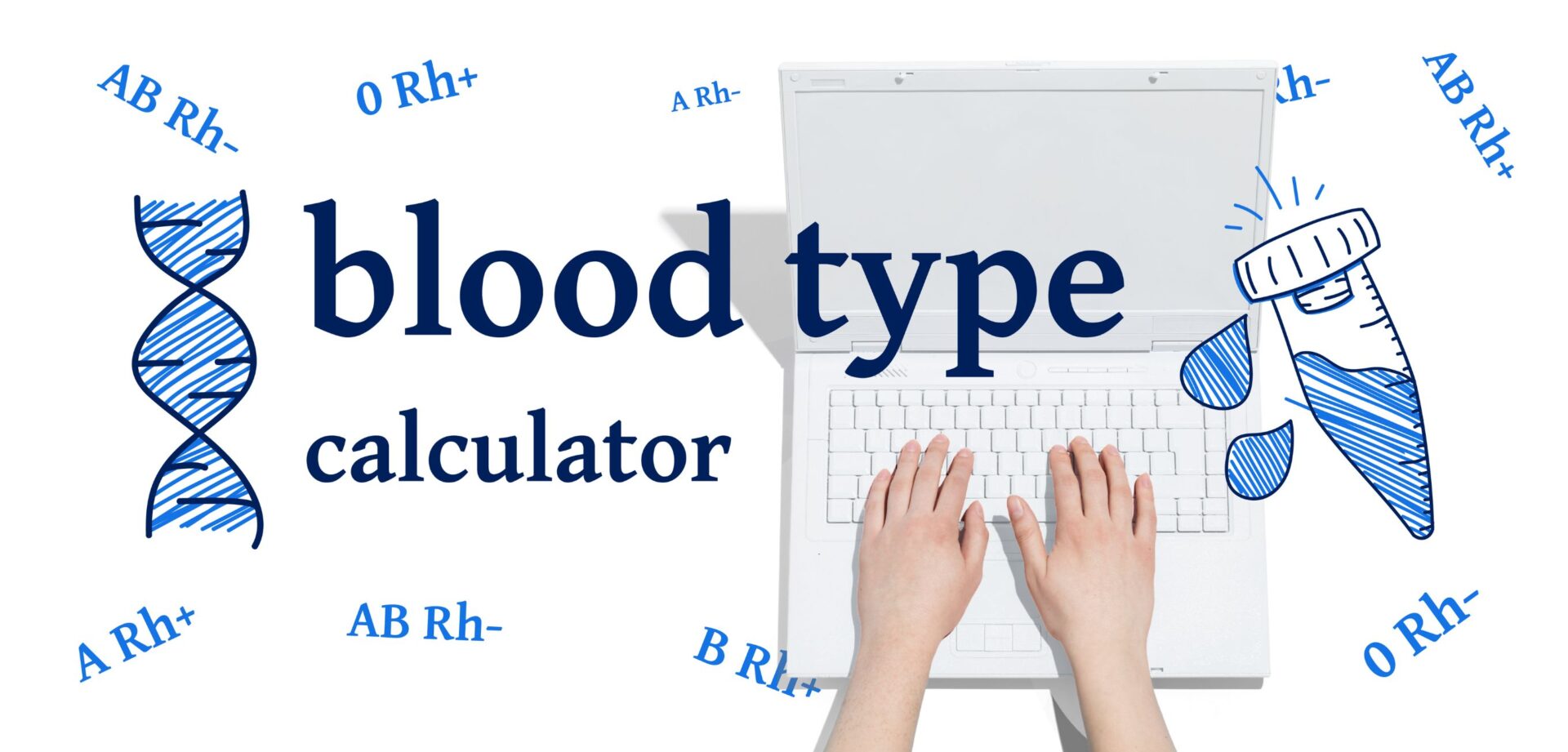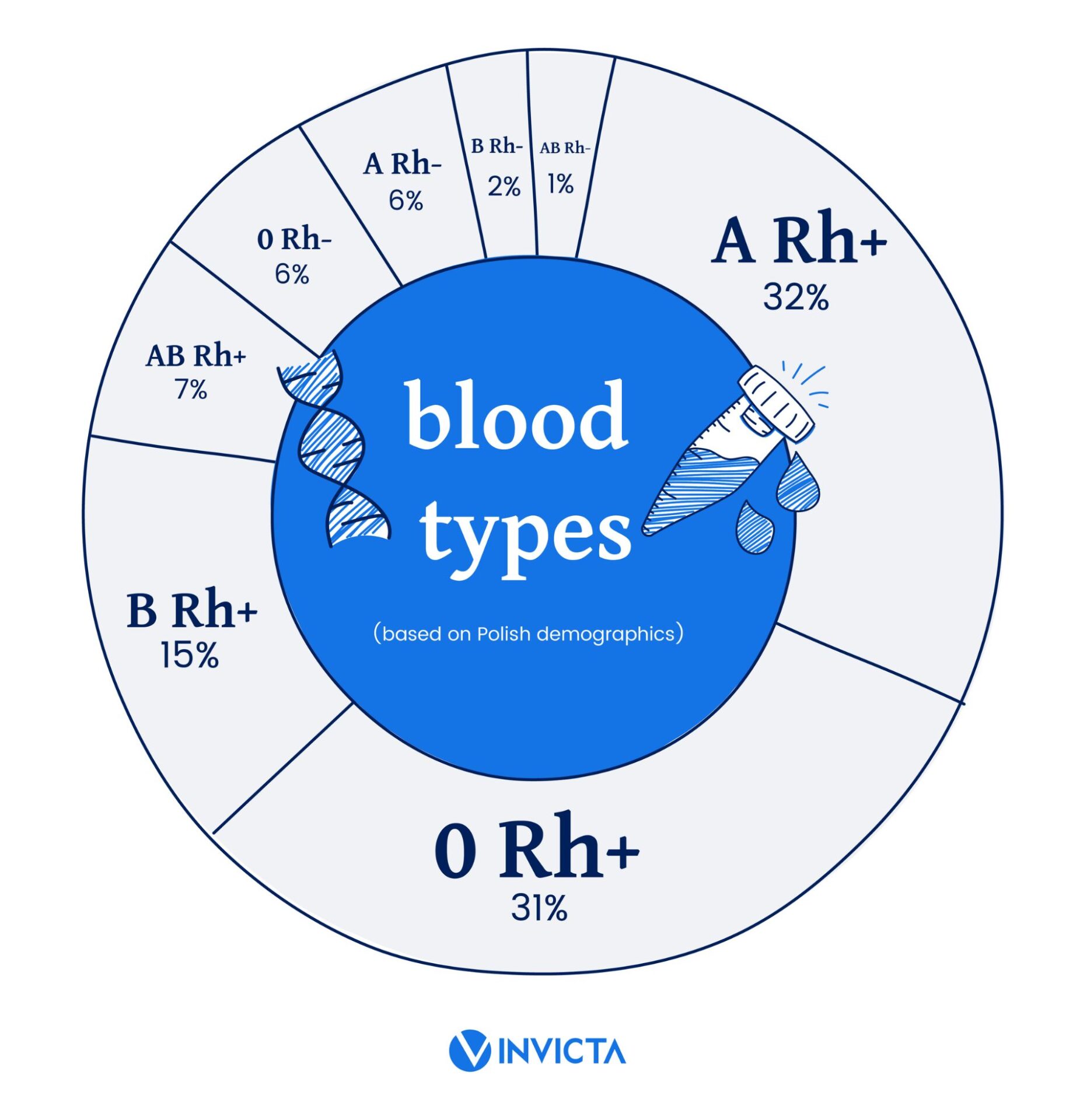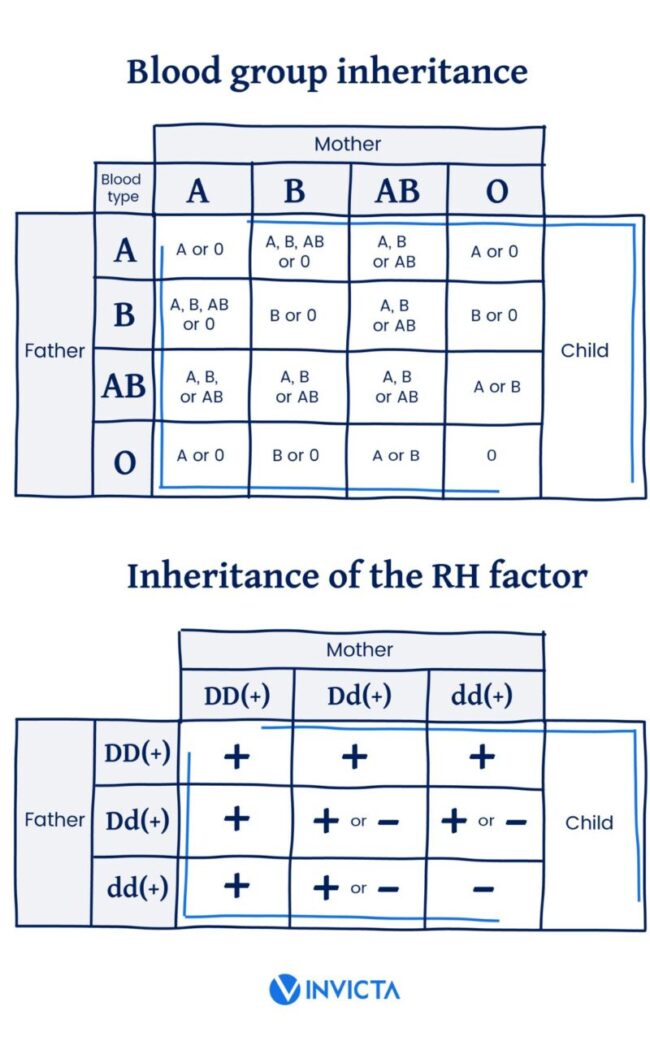Data aktualizacji: 26 April 2024
Publish date: 1 March 2024
Przeczytasz w 7 min

In the selection of an egg donor and sperm donor in assisted reproductive efforts, it has become customary to consider blood type and the Rh factor. This characteristic is not legally required (in the law on infertility treatment), but it is still important if patients want the child to have the same blood type as it would inherit from both parents.
Try our calculator to see what blood type the child would have depending on the blood type of the egg donor or sperm donor.
Blood type classification is related to the presence of certain characteristic proteins, called antigens, on the surface of red blood cells. There are many specific antigens on erythrocytes, which results in many blood type systems. The most important for us are the major blood type systems (ABO) and the Rh system. The presence of antigen A or B determines membership in one of the four basic types: A, B, AB, and O.

Belonging to a specific blood type is a constant and unchangeable trait throughout one’s life (with the exception of changes after bone marrow transplantation, but this is rare).
This knowledge is crucial not only in cases such as blood transfusions or major surgical procedures but also becomes of interest to prospective parents who may wonder about their child’s blood type and whether there might be a so-called serologic conflict during pregnancy.
It all depends on the blood type of the recipient patients. For example, if the mother has blood type A Rh+ and the father has blood type B Rh-, the child could be born with blood type: 0 Rh+, 0 Rh-, A Rh+, A Rh-, B Rh+, B Rh-, AB Rh+, or AB Rh-.
Therefore, egg donors or sperm donors may have a different blood type than the recipient patients, considering the possibilities of inheriting this phenotypic trait.
What blood type will the child have in such a case? There are three alleles that determine blood type in the AB0 system: Ia, Ib, and i0. Alleles Ia and Ib are dominant, while i0 is recessive.
Each person has two alleles determining their blood type – one from the mother, the other from the father. Dominant alleles (as the name suggests) prevail over the recessive allele.
This means that if a person has two alleles – dominant and recessive – their blood type will correspond to the dominant allele:
We know that the mechanism of inheritance described may seem quite complicated, so we have created a blood type calculator to help you determine what blood type the child will have.

Finally, let’s mention another important issue. We’ve discussed the principles of blood type inheritance in the AB0 system. But how does this process work with the Rh factor?
The presence of the D antigen on red blood cells indicates the Rh+ blood type. The allele responsible for the Rh+ blood type is dominant (D) over the allele (d) responsible for the Rh- blood type (lack of the D antigen on red blood cells).
Remember, each parent passes one allele to the child. What does this mean in the case of the Rh system?
If both parents have Rh+ blood type or one parent has a positive Rh factor and the other negative, the child can inherit both Rh+ and Rh-.
If both parents have a negative Rh factor, the child will also inherit Rh-.
What is the purpose of knowing the Rh factor of the child’s blood type? This knowledge can help avoid the risk of serologic conflict. What is it?
Serologic conflict arises directly from the incompatibility of specific antigens present on the mother’s and the child’s red blood cells. Consequently, it can lead to the development of hemolytic disease of the fetus, which can pose a threat to its health and life.
Due to the mechanism of specific antibody formation, serologic conflict typically does not affect the first pregnancy but rather the second and each subsequent one. Currently, there are tests and effective methods available to prevent the development of serologic conflict, so there is no need to worry too much about it. However, knowledge of the child’s blood type is still valuable.